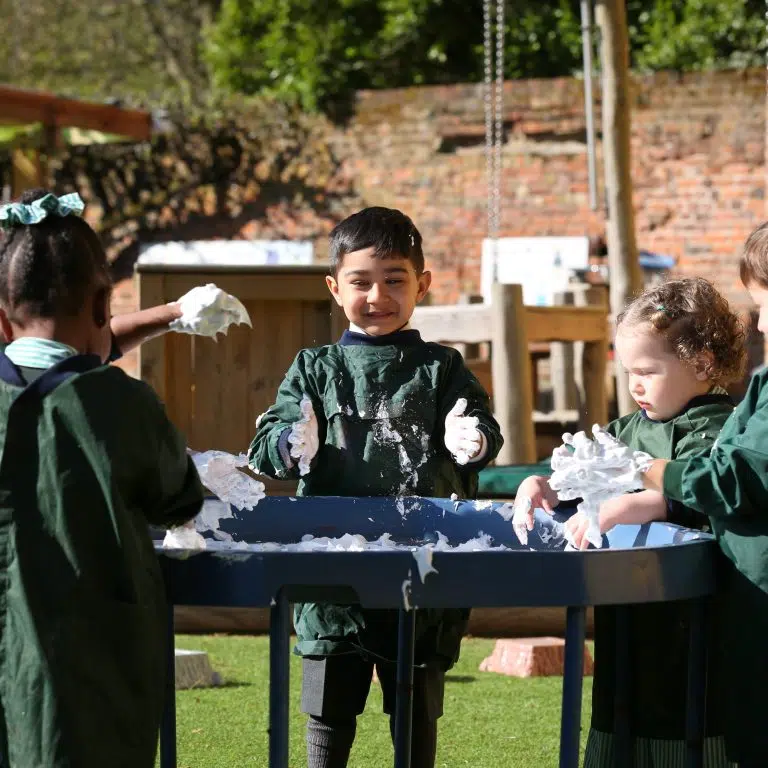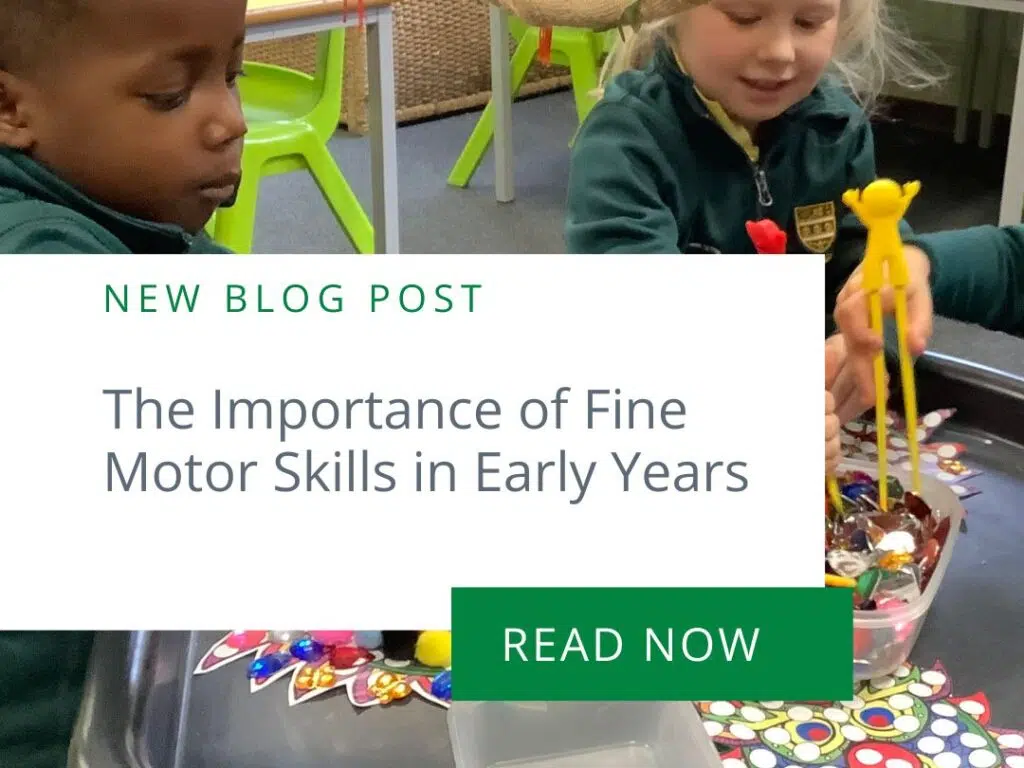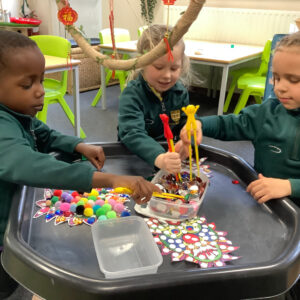EARLY YEARS BLOG
Fine motor skills are crucial for a child’s overall development, impacting their ability to eat, write, dress themselves, and interact with the world around them.
Why are Fine Motor Skills Important?
- Foundation for learning: strong fine motor skills are essential for academic success, particularly in areas like writing and drawing
- Independence: children with well-developed fine motor skills can perform daily tasks independently, boosting their self-esteem and confidence
- Cognitive development: fine motor activities enhance cognitive skills such as problem-solving, hand-eye coordination, and spatial awareness
- Social-emotional development: engaging in activities that require fine motor skills can improve focus, concentration, and self-regulation
Supporting Fine Motor Skills in Farringtons Early Years Department
At Farringtons, we recognise the vital role of fine motor skills in a child’s development. Our Early Years Department provides a rich and stimulating environment where children can explore and develop these skills through a variety of engaging activities:
- Mark making: children are encouraged to explore different materials like paints, crayons, and chalks, allowing them to freely express themselves and develop hand-eye coordination
- Pincer play: activities like picking up small objects, using tweezers and playing with tongs help strengthen the pincer grip
- Moulding: working with playdough, clay, and other malleable materials strengthens small muscles and improves hand-eye coordination
- Pencil control: activities like tracing lines, colouring within the lines and drawing help refine pencil control and prepare children for writing
- Weaving and threading: these activities enhance hand-eye coordination, dexterity and problem-solving skills
- Luceat Programme: in their Luceat lessons children are encouraged to develop practical life skills such as putting on their own coats and shoes, using cutlery and using scissors safely.
Beyond the Classroom
Fine motor skills are developed through everyday activities. Encourage your child to engage in activities like:
- Building with blocks and LEGO
- Playing with puzzles
- Stringing beads
- Playing with air clay and Playdoh
By providing a supportive and engaging environment, both at school and at home, we can help children develop strong fine motor skills that will benefit them throughout their lives.
Learn more about our Early Year’s Department here.



